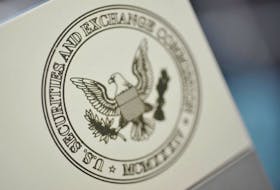Canada has a strong head start in the artificial intelligence space, but the government must take measures to ensure it can take advantage of the rapidly changing technology environment, according to management consultancy Deloitte.
“To achieve AI prosperity in Canada, it’s critical we get public policy right on three key pillars: creating growth in an AI-driven economy, advancing the public good, and building trust in institutions and in society,” Deloitte said in a report on AI.
From smart thermostats to Google Homes remembering their favourite songs, artificial intelligence is permeating the every day lives of Canadians, but only 4 per cent of the citizens surveyed by Deloitte said they were confident in their understanding of AI.
“Our policy frameworks were drafted with good intentions, but many date back decades ― to a time before digitization was widespread ― which has led to legal grey zones and operating risk today,” the report reads.
To this end, Deloitte recommends reforming intellectual property law to accommodate machine learning, making public data available for commercial use, revising privacy laws and data policies and laying the groundwork for fiduciary data trusts.
The report also recommends securing Canada’s hold as a leader in AI, and ensure they build on the country’s generous research grants that make it appealing to many entrepreneurs on the forefront of AI.
“Expanding the startup visa program with a specific focus on AI and making it easier to qualify for the program is one possibility,”
Deloitte’s other major recommendation is promoting AI literacy in all facets of society, drawing on Harvard University’s initiative to teach AI to U.S. congressional leaders. For public education, Deloitte draws on Finland’s free online course, ‘Elements of AI.’
This extends to labour education, as a Brookfield Institute at Ryerson University report estimated that more than 40 per cent of Canadian jobs are at risk from automation. A natural extension of that risk, Deloitte warns, involves expanding our social safety net to accommodate the fallout.
“If Canada falls behind other countries in supporting a domestic AI industry, the rules of the game for AI will be decided by other global players and our AI companies may be crowded off the global stage for lack of funding and support,” the report said. “We also risk the health of our entire economy, as businesses may struggle to compete in an AI-driven environment.”
One obstacle that’s stunting the growth of AI in the country is the high level of distrust of AI that exists in the nation.
“This mistrust is holding back the adoption of AI, as businesses and consumers alike told us they had concerns about using AI-enabled tools they didn’t trust,” said Deloitte.
“We also heard that Canadian companies had difficulties understanding and measuring the benefits of AI, and that the transition from startup to scale-up was challenging.”
To offset this, they recommend the government establish an independent body to review government algorithm use. This would also involve combatting realities and perceptions of machine bias.
“For example, if a company disproportionately hires men over women, an algorithm using company data to predict and recommend typical hires will also favour men over women.”
As far as privacy goes, Deloitte recommends a model between Europe’s GDPR and China’s far looser standards.
For the purposes of this report, Deloitte conducted interviews with AI experts in Canada and internationally between November 2018 and January 2019. They also hosted three workshops in Toronto in the fall of 2018 and conducted AI strategies research in 11 countries.
• Email: [email protected]
Copyright Postmedia Network Inc., 2019









